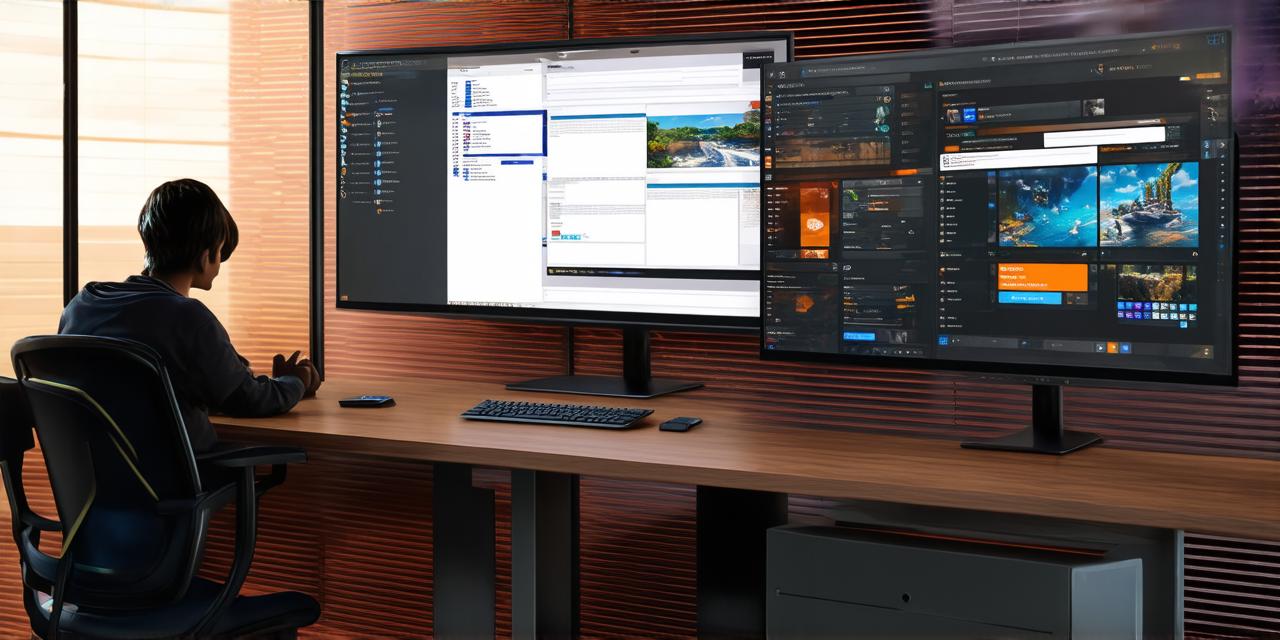Introduction
Publishing a game on PC can be an exciting and rewarding experience for developers. With the right approach, it’s possible to create a game that attracts a large audience and generates revenue. However, there are many factors to consider when publishing a PC game, including marketing, distribution, pricing, and monetization strategies. In this guide, we will explore all of these topics in detail and provide practical advice on how to succeed in the world of PC gaming.
Marketing Your Game
Marketing is an essential part of any successful game launch. It’s crucial to create a buzz around your game and generate excitement among potential players. There are many ways to market your game, including social media campaigns, influencer partnerships, press releases, and events. Here are some tips for effective marketing:
- Create a strong brand identity: Your game should have a clear and compelling brand identity that resonates with your target audience. This includes a catchy name, eye-catching logo, and engaging visuals.
- Build a following on social media: Social media is a powerful tool for reaching potential players and building buzz around your game. Be sure to create accounts on popular platforms like Facebook, Twitter, and Instagram, and post regular updates about your game’s progress.
- Partner with influencers: Influencers can help you reach new audiences and generate excitement about your game. Look for influencers who have a large following in your target market and partner with them to promote your game.
- Host events: Events can be a great way to generate buzz around your game and meet potential players face-to-face. Consider hosting a launch party, a gameplay demonstration, or a Q&A session.
Distribution Channels
There are many ways to distribute your PC game, including digital stores, physical retailers, and online marketplaces. Here are some options to consider:
- Digital stores: Digital stores like Steam, GOG, and the Microsoft Store offer a convenient way for players to download and play your game. These stores also provide access to a large audience of potential players.
- Physical retailers: If you want to sell physical copies of your game, you can work with retailers like GameStop or Best Buy. This can be a great way to reach new audiences and generate revenue from sales.
- Online marketplaces: There are many online marketplaces where you can sell your game, including eBay, Amazon, and Etsy. These platforms offer access to a wide range of potential buyers and can be a good option for niche games.
Pricing Strategies
When it comes to pricing your PC game, there are many factors to consider, including the cost of development, market demand, and competition. Here are some tips for setting the right price:
- Research competitors: Look at what other games in your genre are selling for and use this information to set a competitive price.
- Consider your target audience: Think about who your target audience is and what they’re willing to pay for a game. If your game is aimed at a niche market, you may be able to charge a premium.
- Offer promotions and discounts: Consider offering promotions and discounts to encourage players to buy your game. This can include early bird discounts, bundle deals, or season passes.
Monetization Strategies
There are many ways to monetize your PC game, including in-game purchases, ads, subscriptions, and merchandise sales. Here are some options to consider:
- In-game purchases: Consider selling in-game items like weapons, skins, or cosmetic items to players who want to enhance their gaming experience.
- Ads: If you decide to include ads in your game, be sure to make them non-intrusive and relevant to your players’ interests.
- Subscriptions: Consider offering a subscription model that gives players access to exclusive content and perks.
- Merchandise sales: If your game has a strong brand identity, consider selling merchandise like t-shirts, hats, or collectibles. This can be a great way to generate revenue from fans of your game.
Case Study: Valve’s Half-Life 2
Valve is a well-known developer and publisher of PC games. One of their most successful titles is Half-Life 2, which was released in 2004. Here are some lessons we can learn from Half-Life 2’s success:
- Marketing: Valve created a strong brand identity for Half-Life 2 and built a following on social media.

